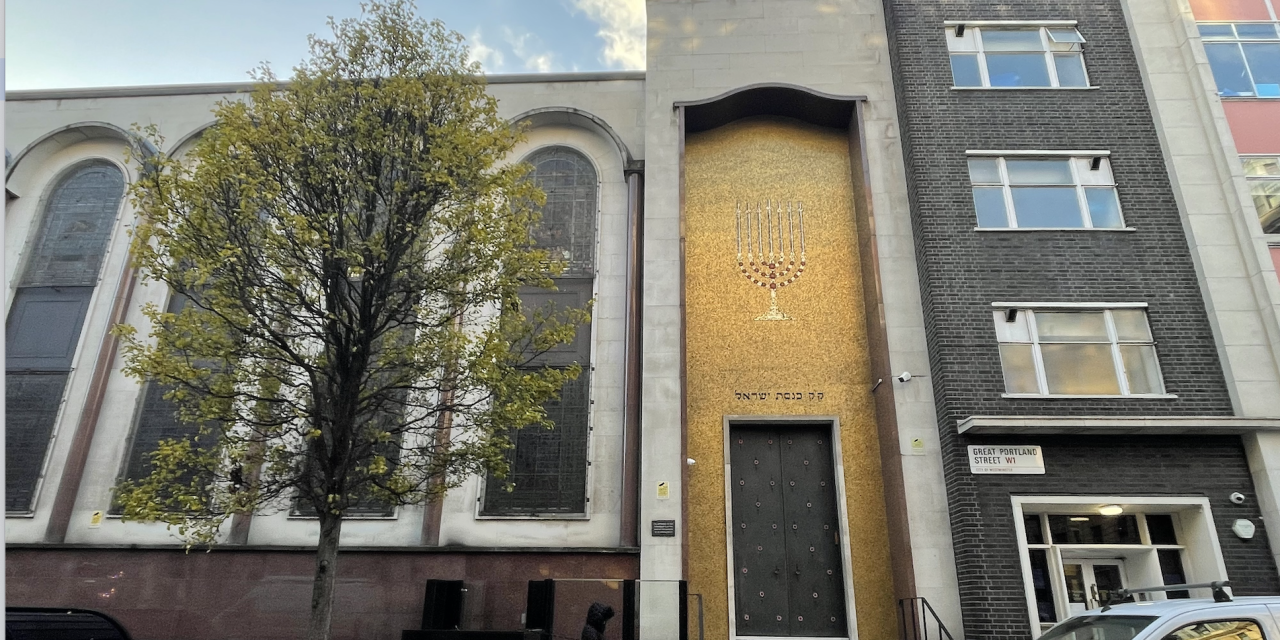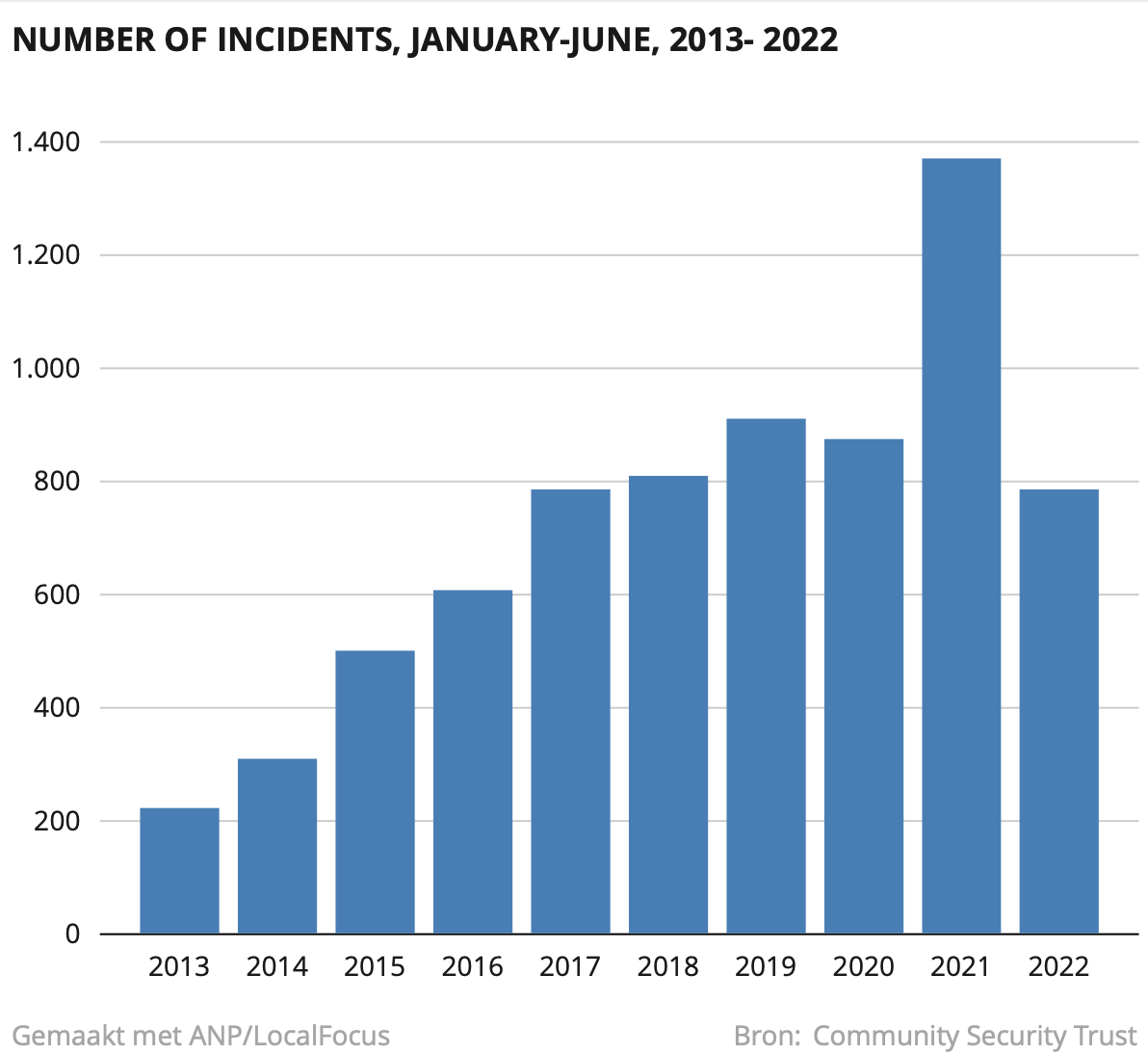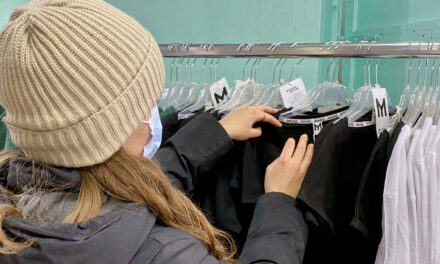Anti-Jewish Hatred; renewing the commitment on tackling Anti-Jewish Hatred in 2023. It was a report published by Lord Mann and describes exactly what the front pages says. It was reported to the house of commons and makes it painstakingly clear that things need to change.
Learning through education
The report makes numerous points. It states for example that it’s important that next to what’s already being taught about the holocaust in secondary schools, contemporary antisemitism should be added to the curriculum. Something that assistant headteacher of a Jewish secondary school Mr Blatcher wholeheartedly stands by;’ I think it’s an incredibly positive move that antisemitism is back onto the curriculum and that it’s an ongoing part of political and educational agendas. It’s only by education that we ever realistically have a good chance at challenging racism.’ He hopes this implementation will cause positive change; ’Hopefully it helps make a better educated generation who are going to look at this with more open eyes and hopefully create a fairer society.’
Because the fact that the holocaust is the only form of teaching about antisemitism in the teaching materials right now doesn’t sit right with everyone, for example Rabbi Meyer from PaJes; ‘Whilst there is no question that holocaust education must be a required element for every student, there is a danger that it is being taught as a story from the past with little relevance to the present. It is essential that we teach our children how to learn from the lessons of the past in order that we don’t allow history to repeat itself.’
‘It is essential that we teach our children how to learn from the lessons of the past in order that we don’t allow history to repeat itself.’
And that antisemitism isn’t something from the past can be seen in the numbers published by CST. According to the the antisemitic accidents report published in February of 2022 there were 2,255 antisemitic accidents reported in 2021, with 752 potential incidents that weren’t included.. That means that there was an increase of 34% when comparing these numbers to 2020. They conclude that this increase follows after a large amount of anti-Jewish reactions to what was happening in Israel and Palestine the year before. This also resulted in the rise of antisemitic incidents in secondary schools, but also in higher education this was seen more often.
In August of 2022 a report was published about the first half of the year in 2022. Here they registered a lower number of cases when compared to the first half of the year in 2021. This means that there might be a decrease in antisemitism. But to have this confirmed we’ll have to wait till the CST publishes another report concluding the year of 2022. See the graph below.
This addition to the material is also something that UNESCO (United Nations Educational, Scientific and Cultural Organization) talked about in 2018 at the ‘power of education to prevent racism and discrimination: the case of antisemitism’ event. The Secretary General of the United Nations recognized the importance of education in preventing anti-Jewish hatred and talked about multiple points here such as that there should be education programmes developed that address anti-Jewish hatred in a framework of human rights and global citizenship. Next to that the Secretary General also talked about the fact that there is some building that needs to be done on the capacity of the educational system. They need to have the capacity to address antisemitism, conspiracy theories and all other forms of hate speech.
It still happens
Because that antisemitism isn’t something from the past is also something that assistant headteacher Mr Blatcher notices when talking about it with his students; ’We discuss it as a general issue, talk about their personal experiences, what it’s like in a local community, what it’s like on a national level and what it’s like on an international level. One of the first questions we ask is “do you ever feel you’ve been treated differently for being Jewish?” and almost every boy will say yes, this has happened. And I can give a list of times when this has been the case. Sometimes it’s little things; in public shouting things to them out of the window of a car, sometimes it’s much more direct and specific and you can link it to a case where they had to report it to the police.’
This safety issue is also a problem for Jewish students enrolled in University. The safety of Jewish students on campuses is therefore also a point in the report of Lord Mann. Something that in 2019 had already been brought up in the house of commons, but apparently didn’t have much effect being that it is brought up again now. Anti-Jewish Hatred amongst students has been a popular topic the last month, a report published by Rebecca Tuck KC revealed the anti-Jewish hatred within NUS, a student organization focused on the rights for students. ‘An NUS that doesn’t represent Jewish students is not fit to represent anyone’ is what UJS president Joel Rosen had to say about that in Jewish News. The organization focused on Jewish students commented on the report of Lord Mann in a positive manner earlier on social media.
Lilit Zeltsburg, an expert on Holocaust and Genocide studies also praises the report of Lord Mann. ‘The first thing I noticed about the report is how good it was when I compared it to a report very similar to this one in the Netherlands. That didn’t feel like a decisive report, this does. In this report the first thing that happens is naming the responsible parties that need to help combat antisemitism.’ She feels like the focus in the UK’s report is better, than in the Dutch report. ‘In the UK’s report it’s actually about how they’re going to do something about antisemitism now, what the antisemitic thoughts are that people have now and how they are going to combat those thoughts.’





